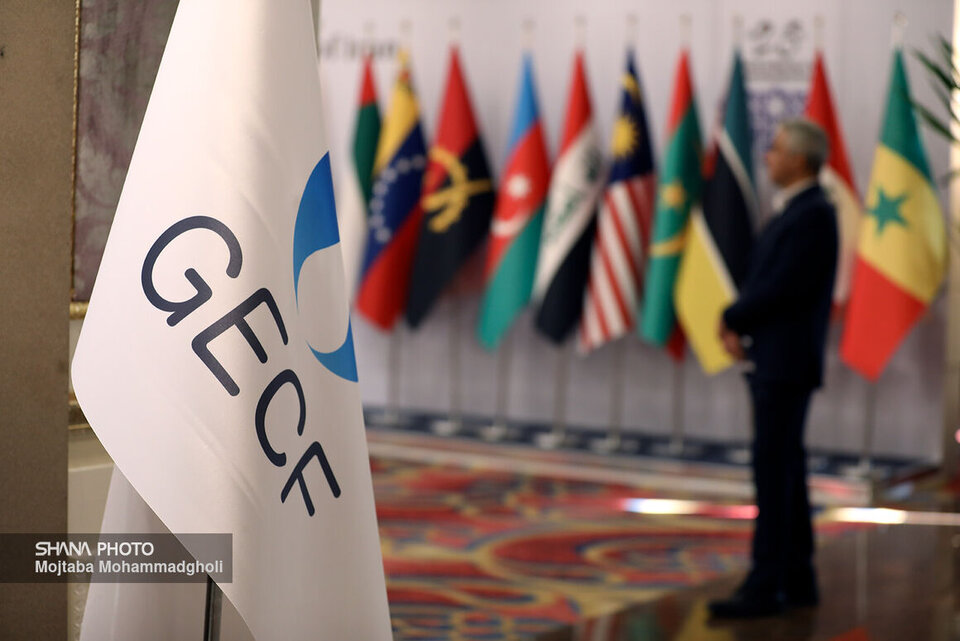Since its formal establishment in 2010, the GECF, which now has 20 member and observer countries, has navigated a dynamic path. Controlling more than 70% of the world's natural gas reserves, it plays a decisive role in global gas market policy and is a key pillar in international energy dialogues.
Leonid Bokhanovskiy: Founding GECF's International Relations
The first secretary-general was Leonid Bokhanovskiy of Russia, who served two consecutive terms from 2010 to 2014. He took the helm when the GECF's executive and organizational structures were newly formed and in need of institutional cohesion and international credibility.
Bokhanovskiy focused on creating a formal cooperation framework among member states, developing a mechanism for energy data exchange and bridging the gap between gas producers and consumers. He laid the foundation for the GECF's organizational and technical relations.
Under his leadership, the forum established formal communications with international energy bodies like the International Energy Agency and the International Energy Forum, boosting its credibility and integrating it into global policy discussions. He also played a key role in forming the permanent secretariat and drafting its first internal cooperation framework. Energy experts regard his tenure as the institutional consolidation phase.
Mohammad-Hossein Adeli: Strengthening the GECF's Global Market Role
After Russia, the secretary-general position went to the Islamic Republic of Iran. Mohammad-Hossein Adeli, with extensive experience in banking and energy policy, became the second secretary-general. His tenure marked a turning point in transforming the GECF from a purely coordinating body into an analytical and influential forum in the global energy market.
Adeli focused on increasing gas market transparency, strengthening the forum's analytical role and producing reliable economic data for members. A key achievement was launching a shared energy database, which established the GECF as a reliable source for gas market statistics.
Other notable actions included publishing joint reports with international energy entities, developing scientific and research cooperation, and enhancing member coordination in gas market decision-making. During this period, the GECF steadily cemented its position in global energy negotiations, becoming an effective player alongside organizations like OPEC and the International Energy Agency.
Yury Sentyurin: Entering Climate Dialogues
In 2018, Yury Sentyurin, another senior Russian diplomat, was elected as the third secretary-general. His term coincided with profound shifts in global energy policy and increased focus on climate change, which shaped a new direction for the organization.
Sentyurin prioritized reducing greenhouse gas emissions, developing low-carbon technologies and fostering member synergy for a fair energy transition. He worked to present a new image of the GECF as an environmentally responsible organization by increasing its dialogue with international and climate bodies.
The forum played a prominent role in analyzing global energy developments through its annual analytical reports on the global gas market and future demand. Technical, educational and policy cooperation among members in liquefied natural gas technology also expanded. Sentyurin's tenure can be seen as a period of active energy diplomacy and the GECF's entry into climate discussions.
Mohamed Hamel: Modernization and New Market Strategies
Since 2022, Mohamed Hamel of Algeria has served as secretary-general. With a long background in energy policy and high-level roles in Algeria's Ministry of Energy, he began a new chapter of modernizing the forum's structure.
Hamel's focus has been on developing new strategies for the global gas market, expanding membership and drafting a long-term roadmap for the GECF. With a forward-looking approach, he designed a new gas market model to update analytical structures and market forecasting, strengthening the economic and technical decision-making of member states.
Other priorities include increasing membership to 20 countries (members and observers), enhancing regional and international cooperation, developing relations with global economic institutions, and focusing on supply security and market stability. Hamel believes the GECF should act not only as a gas exporters' forum but as a decisive institution in global energy dialogues and sustainable development.
A Path of Institutional Growth and International Influence
The legacy of these four secretaries-general demonstrates the GECF's remarkable structural and conceptual transformation. If the first decade focused on foundation-building and institutional consolidation, the forum has now reached a stage of analytical maturity, energy diplomacy and strategic policymaking.
Today, leveraging the vast gas reserves of its members, a broad network of technical and analytical cooperation, and an active presence in global energy dialogues, the GECF plays a key role in shaping the future of the gas market and the global transition to clean energy. The forum now not only reflects the interests of gas-exporting countries but also serves as a collective voice for the gas world in international energy discussions.


Your Comment